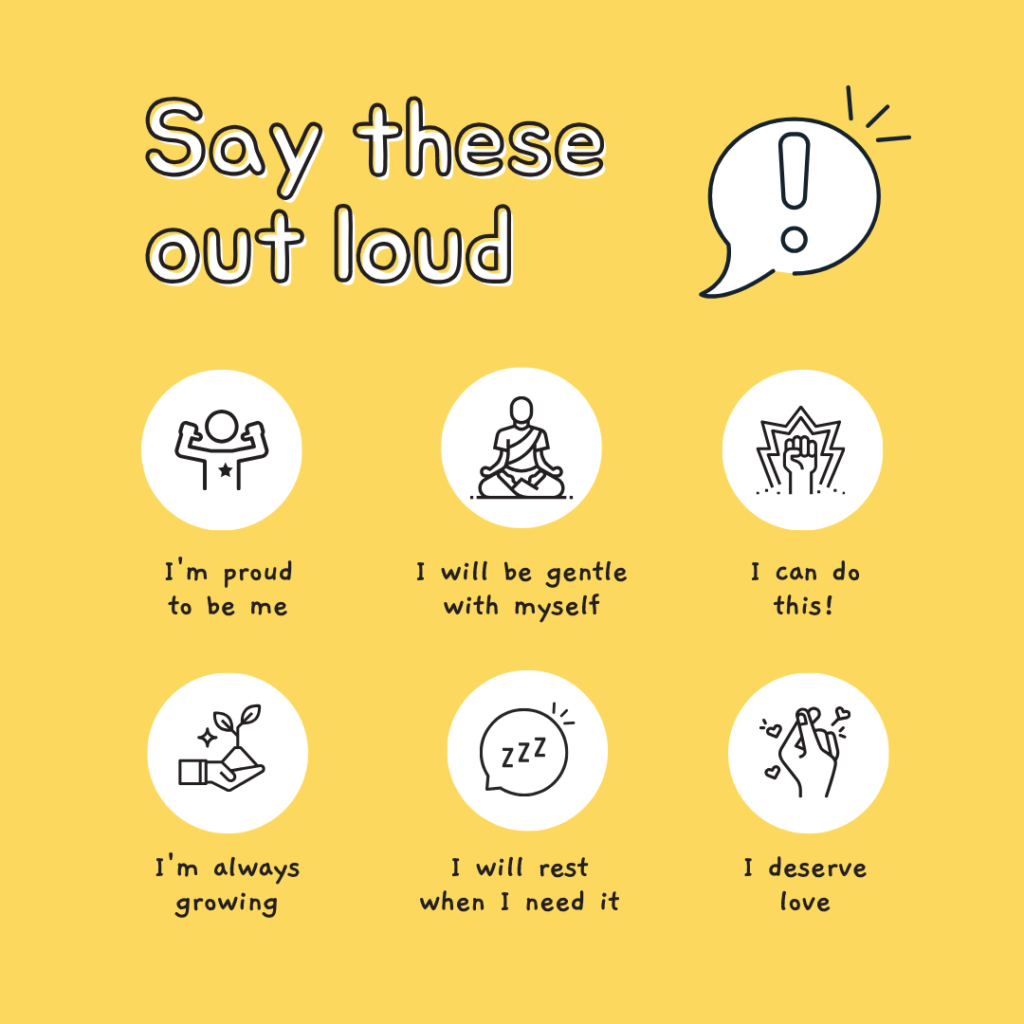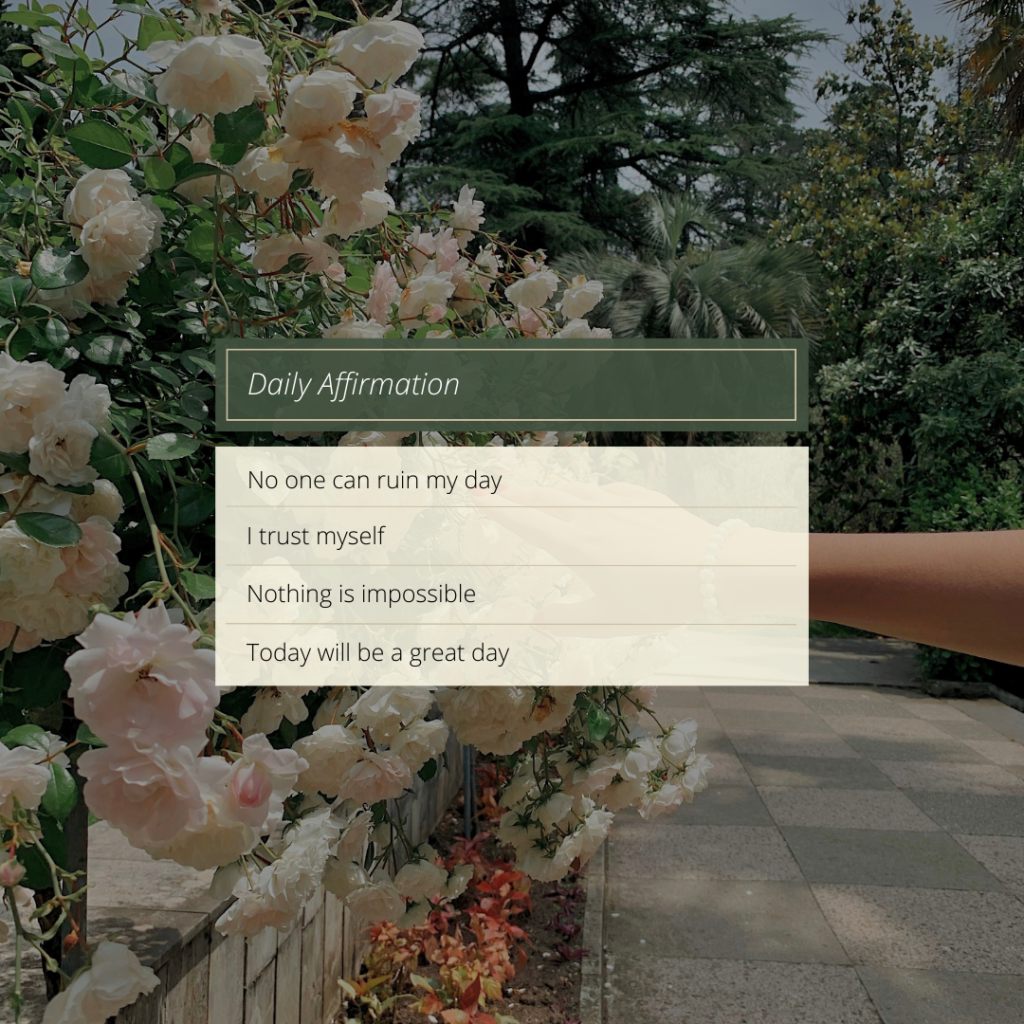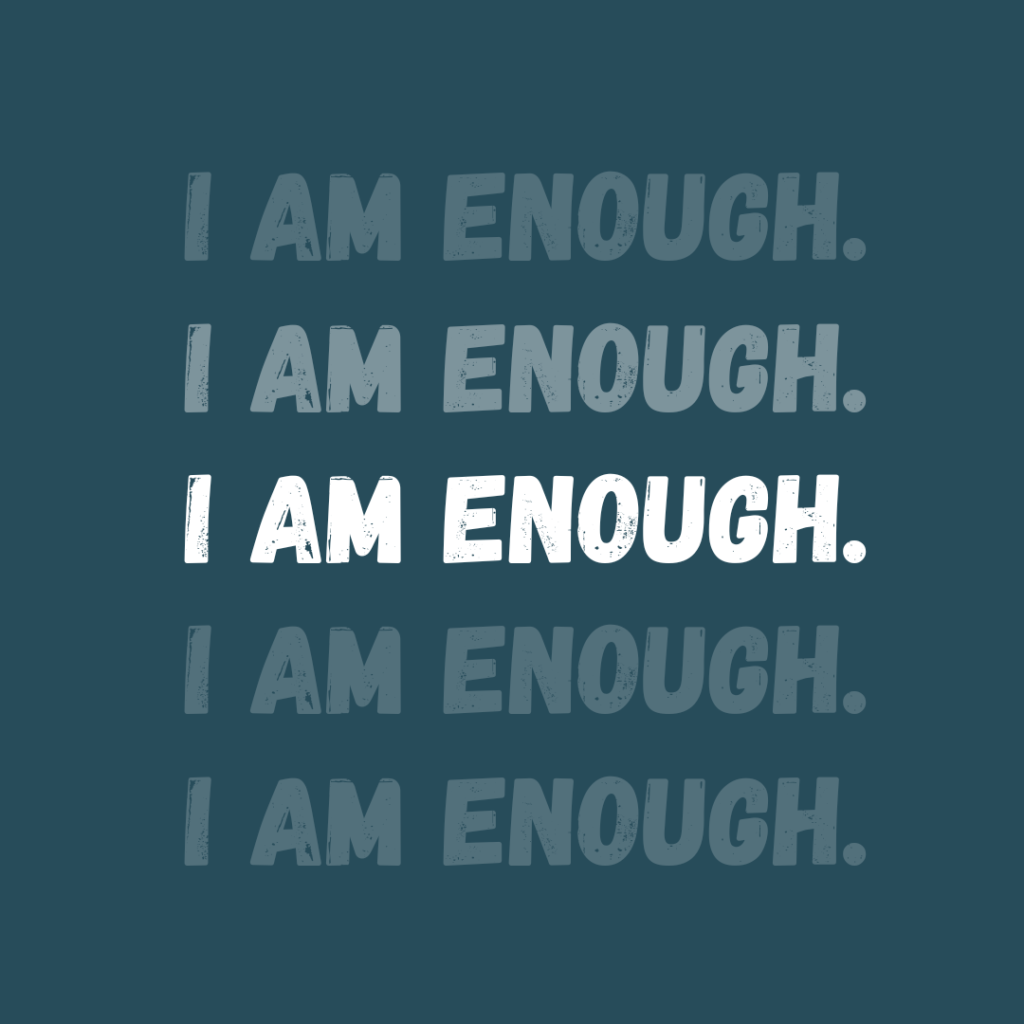80 Powerful Affirmations for Depression to Help You Stay Positive
80 Powerful Affirmations for Depression to Help You Stay Positive

Struggling with depression can feel overwhelming, but there’s a simple tool that might help – positive affirmations for depression. These are short, uplifting phrases you repeat to yourself to challenge negative thoughts. Positive affirmations can improve your mood and boost self-esteem, offering a small but effective way to manage depressive symptoms.
Many people find that repeating affirmations daily helps shift their mindset. Statements like “I am worthy of love and happiness” or “I believe in myself and my abilities” can gradually change how you feel and think. For example, a list of 107 positive affirmations for depression provides plenty of options to get started.
EMDR therapy can help negative thoughts by processing the negative beliefs that they are connected to. Negative beliefs that influence negative thoughts come from past negative experiences that can impact depression, anxiety, disordered eating, and other mental health issues.
Explanation Of How Affirmations Can Change Thought Patterns
Affirmations can play a significant role in managing depression by altering thought patterns and reinforcing positive beliefs. Scientific studies back up the effectiveness of affirmations in mental health treatment.
When I found myself dealing with depression, I knew I could not deal with this alone. I began working with an EMDR professional. Identifying my underlying life events, experiences, and traumatic memories helped lead me to the development of positive beliefs and began to alleviate symptoms of depression.
Scientific Evidence Supporting The Effectiveness Of Affirmations
Studies suggest that affirmations can indeed reduce symptoms of depression. Research in psychology shows that positive self-talk can lower stress and anxiety levels.
A 2015 study in The Journal of Social Cognitive and Affective Neuroscience found that self-affirmations activate brain regions associated with reward and self-evaluation, suggesting a neurobiological basis for their benefits.
Another study linked affirmations with improved problem-solving under stress. By reinforcing positive thoughts, affirmations help people manage challenges better, offering a meaningful tool for those battling depression.
General Tips for Using Affirmations
When using affirmations for depression, it’s essential to focus on consistency, integrate them into your daily life, and genuinely believe in the words you say. These steps can help affirmations be more effective and impactful. My favorite was writing my positive affirmation on my bathroom mirror and sticky notes in my car, desk, and nightstand to remind me throughout my day.
List of 80 Powerful Affirmations for Depression

Self-Worth:
- I am enough.
- I deserve love and joy.
- I am proud of who I am becoming.
- I am valuable just as I am.
Inner Peace:
- I am calm and relaxed.
- Peace begins with me.
- I choose peace over worry.
- Calmness flows through me with each breath (pair with a breathing technique for better results).
Gratitude:
- I am grateful for what I have.
- Thankfulness fills my heart.
- I appreciate the small blessings in my life.
Healing:
- I am on a journey of healing.
- Each day, I become more robust.
- I am healing physically, mentally, and emotionally.
- My body and mind are working together in harmony.

Hope:
- I hold onto hope, even in the darkest moments.
- A new day brings new possibilities.
- I am hopeful for my future.
- Hope shines a light in my life, guiding me forward.
Strength:
- I am stronger than I feel right now.
- Every small victory is a testament to my strength.
- My strength grows every day.
- I am brave, capable, and resilient.
Resilience:
- I am resilient and can face what today brings.
- Each challenge makes me wiser and more resilient.
- My resilience is my superpower.
Patience:
- I allow myself the time I need to heal.
- Healing happens in its own perfect time.
- I trust the timing of my life.

Acceptance:
- I accept where I am today.
- Embracing my feelings is part of my journey.
- I accept myself fully and without judgment.
- Every part of me deserves acceptance and love.
Self-Love:
- I am worthy of love, especially my own.
- Loving myself is an act of courage and strength.
- I cherish and honor myself deeply.
- My love for myself grows each day.
Compassion:
- I offer myself kindness and compassion.
- I am gentle with myself, even on tough days.
- I cherish and honor myself deeply.
Release:
- I release what no longer serves me.
- Letting go brings me closer to freedom.
- I release all that holds me back.

Purpose:
- My life has purpose, even if I can’t see it now.
- I trust that purpose will reveal itself in time.
Mindfulness:
- I focus on my breath and calm my mind.
- Mindfulness brings me closer to peace.
- I am fully present and engaged in each moment.
Grounding:
- I am grounded and centered in the present moment.
- I am steady, no matter the storm.
- The earth supports me and brings me balance.
Connection:
- I am not alone; I am part of a greater whole.
- I allow others to support me.
- I am connected to others and the world around me.
- My relationships bring me strength and joy.

Belief in Change:
- I believe in my ability to change and grow.
- Change brings me closer to myself.
Time for Healing:
- Healing takes time, and I allow it.
- My journey is uniquely mine.
- Healing is happening at the perfect pace for me.
Inner Wisdom:
- My inner wisdom guides me through this time.
- I trust in my own guidance.
Love for Inner Child:
- I love and comfort my inner child.
- Nurturing my inner child brings me peace.

Trusting the Process:
- I trust the process of healing.
- I am exactly where I need to be.
- I trust that everything is unfolding as it should.
- Each step in my journey has purpose and meaning.
Happiness:
- I open myself to happiness, bit by bit.
- Happiness is within my reach.
- Happiness flows to me freely and abundantly.
Living for Today:
- Today is a new beginning.
- I embrace it with open arms.
- I choose to live fully in the present moment.
- Today is a gift, and I embrace it with gratitude.
Emotional Freedom:
- I am free to feel, and I am safe.
- My emotions are a part of me.
- I allow my emotions to flow without judgment.
- Feeling my emotions brings me peace and release.
How to Incorporate Affirmations into Your Daily Routine?
Adding affirmations into daily life makes them a natural part of your day.
Start by putting sticky notes with affirmations on your mirror, fridge, or computer. This way, you see and repeat them often.
Another method is to incorporate affirmations into activities you already do. Say them while brushing your teeth, taking a shower, or commuting.
Using reminders on your phone can also prompt you to pause and recite your affirmations.
Make sure your affirmations are meaningful and resonate with you. Tailor them to your struggles and goals to make them more effective.
Wrap-Up

Positive affirmations can be a powerful tool for managing depression. They can boost mood, build self-esteem, and provide hope. Here are some key points to encourage making affirmations part of daily life and ways to share and explore more about mental wellness.
The Benefits of Using Affirmations for Depression
Affirmations for depression can help combat negative thoughts. Simple positive statements like “I am strong” or “I can overcome challenges” can shift focus away from negativity. Repeating daily affirmations can help change thought patterns over time, reducing symptoms of depression.
These affirmations for depression foster resilience, promote self-love, and instill hope. They remind individuals they are capable and worthy.
Start Incorporating Affirmations Into Daily Life
It’s important to start small with a few affirmations, repeating them in the morning or before bed. Writing down affirmations in a journal can make them more effective. Reminders on your phone or sticky notes at work help maintain focus throughout the day.
Make it a habit to say these affirmations for depression out loud, fostering a positive mindset. This daily practice can be a simple yet powerful step in managing depression.
Collaborating with an EMDR specialist could be the missing key to your success. Depression is lonely; withdrawing and isolation do not help. Having a caring specialist by your side to walk with you out of this valley can be the most encouraging experience. For me, this one decision not only helped me out of the dark valley but also brought me down the path of becoming an EMDR therapist, where I today get to help others with their journey to a better life.

If you or someone you know is experiencing depression and needs support, there are many helplines that can provide assistance. Here are some options, including both national and international hotlines:
United States
- 988 Suicide & Crisis Lifeline – 988
- Provides 24/7, free and confidential support for people in distress.
- National Alliance on Mental Illness (NAMI) Helpline – 1-800-950-NAMI (6264)
- Available Monday through Friday, 10 a.m. to 10 p.m. ET, for information and support.
- Crisis Text Line – Text HELLO to 741741
- Free, 24/7 text support for people in crisis.
- Veterans Crisis Line – 988, then Press 1
- Specialized support for veterans and their families.
United Kingdom
- Samaritans – 116 123 (free call in the UK and Ireland)
- Provides 24/7 support for those in distress or needing someone to talk to.
- Shout – Text SHOUT to 85258
- 24/7 text messaging support for anyone in crisis.
Canada
- Crisis Services Canada – 1-833-456-4566 or Text 45645 (4 p.m. – 12 a.m. ET)
- Available 24/7 for people in crisis.
- Kids Help Phone – 1-800-668-6868 or Text CONNECT to 686868
- Free, 24/7 support for youth in need of assistance.
Australia
- Lifeline Australia – 13 11 14
- Provides 24/7 crisis support for anyone in need.
- Beyond Blue – 1300 22 4636
- Support available 24/7 for mental health issues, including depression and anxiety.
International
- Befrienders Worldwide – Visit Befrienders for a list of helplines in various countries.
- Offers international support and connects people with local helplines.
If you’re in immediate danger or need urgent help, consider going to the nearest hospital or emergency room. And remember, reaching out is a brave and important first step toward feeling better.
Frequently Asked Questions
Struggling with depression can feel isolating, but you’re not alone. Here are answers to some of the questions people commonly ask about dealing with depression, healing, and finding hope.
Remember, every step forward matters, and it’s okay to go at your own pace. This guide provides supportive information on the journey toward feeling better.
What are some first steps I can take to manage depression?
Starting small is key. Try to focus on one thing you can do today to take care of yourself, like going for a short walk, eating a healthy meal, or just allowing yourself to rest. Reciting positive affirmations for depression aid in reminding ourselves what we are capable of – and what we love in life. Talking to someone you trust, whether it’s a friend, family member, or therapist, can also be a powerful first step.
Can affirmations for depression really help with depression?
Yes, affirmations for depression can be helpful for some people. They aren’t a cure, but positive affirmations can shift your mindset over time. Repeating phrases like “I am enough” or “I am healing every day” can create gentle reminders of self-worth and possibility, even on tough days.
How do I know if I should see a therapist?
If you’ve been feeling low for more than a couple of weeks, or if depression is affecting your day-to-day life (work, relationships, sleep, etc.), it might be helpful to talk to a therapist. They can offer tools and support tailored to you.
Can depression really affect my physical health?
Yes, depression can cause physical symptoms, like fatigue, headaches, digestive issues, and even pain. Mental and physical health are connected, so it’s normal to feel depression’s effects throughout your body.
I’ve tried everything, and nothing works. What should I do?
First, know that you’re not alone. Depression can feel stubborn and frustrating. You might want to consider different types of therapy or treatment, including alternative approaches like mindfulness or support groups. Sometimes it takes time and trying a few different things to find what helps.
What if my depression makes me feel disconnected from others?
Depression often creates a sense of isolation or disconnection. Sometimes, reaching out even when you don’t feel like it can help reestablish that connection, even if it’s just a small message to a friend or family member.
How can I find joy when everything feels heavy?
Joy may feel distant, but it can come in small moments. Focus on little things that bring comfort or peace—a warm drink, a favorite song, or time spent in nature. Over time, these small moments can build up.
About the Author

Tracy Kingdeski is a Licensed Associate Counselor at Infinite Healing and Wellness.
Tracy is EMDR and RTEP trained and loves working with children and adults of all ages. Tracy is passionate about helping others grow and learn from their past so they can fully enjoy the present and future moments of their lives. She believes everyone was born with unique gifts and talents and helping them discover these and become empowered to live out their best life is the ultimate satisfaction of her job.
When Tracy is not compassionately working with her clients she enjoys spending time with her fiancé, her 3 adult children, and extended family, who all live close by.
She loves to exercise, try new restaurants, travel to new destinations and always loves a good movie night at home.







